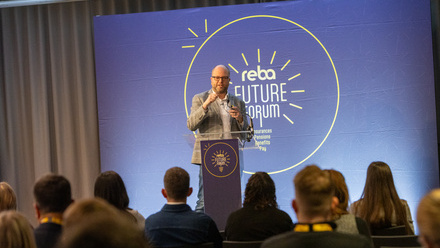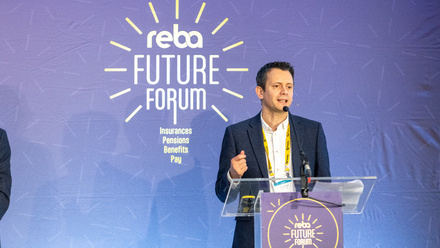Why virtual health assessments will be key to greater productivity

Technology-driven change has of course been front of mind across healthcare. The focus of advanced research across medicine and vaccines saw a significant gear change to tackle the ongoing crisis. Artificial intelligence, virtual reality, data sharing, wearable devices, hygiene tech and robotics, have all advanced in response to healthcare scenarios requiring greater social distancing, more efficiency and autonomy, plus of course stringent sanitisation requirements.
The key area where an accelerated pace of innovation has been seen is in the delivery of remote services. Globally, the number of virtual healthcare visits skyrocketed during the pandemic and analysts at Forbes predict that during 2021 one third of global virtual care appointments will be related to mental health issues.
Our own occupational health team delivered more than 4,000 return to work medicals over the past year and has remotely undertaken over 50,000 consultations, ranging from statutory medicals through to sickness absence referrals, across under-strain sectors including logistics, manufacturing and engineering to help get employees back to work following Covid-related absences.
Business continuity against adversity
Remote services helped to ensure continuity for businesses at a time when so much has been uncertain. Significantly they also enhanced the overall speed and quality of the support available, with the clear benefits of ensuring that an individual dealing with intense anxiety can be assessed and managed quickly. Thanks to evolved remote services, this can often be done in the space of just a few days, releasing a higher quality report the day after the appointment.
Other innovations within remote service delivery include improvements in the functionality of video calling software to help better connect employees and clinicians.
Evolution and early intervention
Early intervention into absence management to tackle the physical and mental health issues employees may be facing can have a significant impact on the emotional and financial cost of workplace absenteeism. For an organisation with 700 employees, the cost of absence may be £9,000 to £10,000 per day assuming absence costs of £141 to £168 per employee per day, and a 12% absence rate.
Additionally stark is the reality that 40% of workplace absence is due to mental health issues and this is projected to be in the region of 70% by 2023.
The Covid-19 crisis created an imperative for us all to reconfigure operations, but significantly an opportunity to transform them. Evolving health services by incorporating greater use of virtual health assessments will be key when it comes to delivering specialist care, with greater productivity through the recovery years to follow and as the ‘next normal’ continues to play out.
The author is Fiona McGill, senior clinician at BHSF.
This article is provided by BHSF.
Supplied by REBA Associate Member, BHSF
BHSF is a market-leading health and wellbeing provider.







